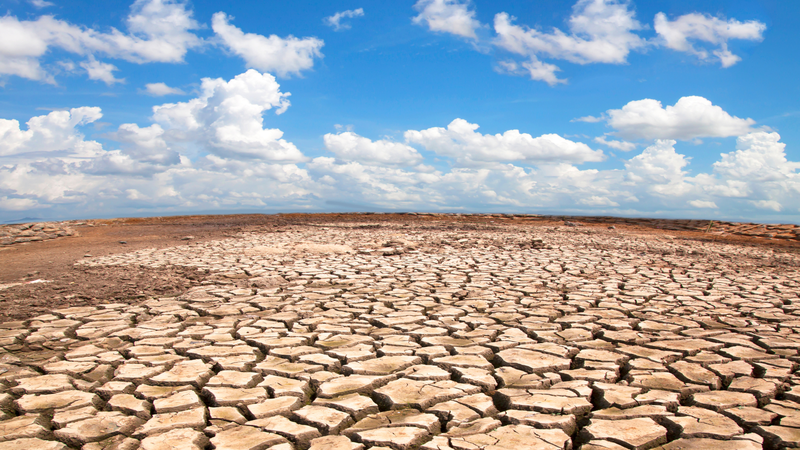June to September rainfall season: dry conditions expected in the northern parts of the Greater Horn of Africa
24th May 2023, Addis Ababa, Ethiopia

IGAD’S Climate Prediction and Applications Centre (ICPAC) today announced that the June to September (JJAS) 2023 forecast shows high chances of drier than usual conditions across the northern parts of the Greater Horn of Africa (GHA). Accordingly, Djibouti, Eritrea, central and northern Ethiopia, western Kenya, northern Uganda, and much of South Sudan and Sudan are expected to receive insufficient rainfall until the end of the season.
ICPAC’s analysis also indicates an increased likelihood of warmer than usual conditions over the entire region, particularly over northern Sudan, parts of southern and central to western Ethiopia, central and northern Kenya, central and northern Somalia, and coastal parts of Tanzania.
The June to September rainfall season is particularly important for the northern regions of the GHA, where it contributes to more than 50% of the annual total rainfall. Dr. Guleid Artan, ICPAC Director, called for heightened vigilance “as the conditions we forecast could very well increase food insecurity in the region. Depressed rainfall, coupled with warmer than usual temperatures, are likely to affect crop productivity, with the risk of crop wilting and a hastened decline in pasture and water availability." He appealed to IGAD’s partners to “stay mobilised and continue to respond to the crisis where 49 million people are still highly-food insecure* in the IGAD region**.”
In most parts of the region, above average rainfall was recorded during the March to May (MAM) 2023 season, bringing some respite to the communities most affected by five consecutive failed rainfall seasons in parts of Ethiopia, Kenya, and Somalia. “It is now very likely that we will transition from La Niña to El Niño between July and September”, explained Hussen Seid, Climate Modelling Expert at ICPAC. “At this stage, there is no indication of the strength or duration of El Niño, but in general it is associated with depressed rainfall between June and September in the north of the region and wetter conditions between October and December in the equatorial parts. So, we must get prepared for much wetter weather towards the end of the year. We encourage our users to consult our weekly and monthly updates that have a high degree of predictability."
ICPAC is a designated Regional Climate Centre by the World Meteorological Organization. Its seasonal forecast is based on an analysis of several global climate model predictions customized for the GHA. In this instance, ICPAC’s scientists have produced a consolidated forecast from seven models which increases its reliability, and the forecast indicates a drier JJAS 2023 season.
ICPAC’s predictions were shared and analysed during co-production sessions that engage representatives of National Meteorological and Hydrological Services of IGAD Member States**. “This spirit of collaboration is instrumental”, as noted by Mr. Kinfe H/Mariyam, Deputy Director General of the Ethiopian Meteorological Institute, in his opening speech to GHACOF 64: “Weather and climate have no boundaries; hence we should work collaboratively. Without a doubt, we have gained a lot from the IGAD Climate Prediction and Application Centre. Let’s continue to deepen the work between our scientists at the regional level."
- End –
*IPC Phase 3 or above, as of May 2023. The Integrated Food Security Phase Classification (IPC) is a set of standardized tools used to classify the severity of food insecurity using a widely accepted five-phase scale: Minimal (IPC Phase 1), Stressed (IPC Phase 2), Crisis (IPC Phase 3), Emergency (IPC Phase 4) and Catastrophe/Famine (IPC Phase 5).
** IGAD Member States: Djibouti, Eritrea, Ethiopia, Kenya, Somalia, South Sudan, Sudan, Uganda.
Note to editors:
The 64th Greater Horn of Africa Climate Outlook Forum (GHACOF64) was convened as a hybrid event on 24th May 2023 by ICPAC in collaboration with the National Meteorological and Hydrological Services in the region and other partners to issue the June - September 2023 seasonal forecast. The forum brought together climate services providers and users from key socio-economic sectors, governmental and non-governmental organizations, decision-makers, climate scientists, and civil society stakeholders, among others, to discuss impacts and mitigation measures for the upcoming season.
We encourage media and climate information users to consult our weekly and monthly updates of the forecasted season: www.icpac.net
For downscaled information, please contact National Meteorological and Hydrological Services.
ICPAC technical report for the JJAS season 2023
Download the technical report Arabic Version
Download GHACOF 64 presentations
Food Security Statement March 2023
French Version of the Press release
For media interviews and requests, please contact:
Nicolas Bellet: +254 110428270 nicolas.bellet@igad.int
Emebet Jigssa: +254 748108077 emebet.jigssa@igad.int
Paula Machio: +254 746511941 paula.machio@igad.int
